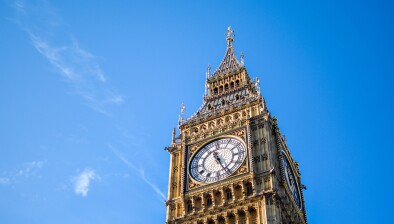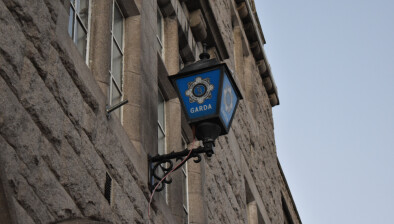High Court: Full costs awarded to partially successful applicants in judicial review proceedings

Killian Flood BL
The High Court has granted an order for full costs despite the applicants only being partially successful in their judicial review proceedings. The court considered the case to be one of “general public importance”, raising significant issues regarding journalistic privilege and freedom of expression.

About this case:
- Citation:[2021] IEHC 11
- Judgment:
- Court:High Court
- Judge:Mr Justice Garrett Simons
Ruling on final orders in the case, Mr Justice Garrett Simons also granted an injunction against the gardaí restraining them from accessing and examining the phone’s contents beyond the limited scope outlined by the court and a stay on the examination of the phone until the determination of an appeal.
Background
The first applicant, Emmett Corcoran, was a journalist in the local newspaper The Democrat, published by the second applicant, Oncor Ventures Limited. On 16 December 2018, Mr Corcoran attended the scene of a major criminal event at Strokestown, Co Roscommon, which involved the assault of a number of people who had evicted occupants of a house by court order. A group of vehicles were set on fire.
The journalist arrived in the aftermath and recorded a video on his phone. When he was asked by gardaí about how he came to hear about the events, Mr Corcoran asserted journalistic privilege and refused to answer. In pursuing criminal charges against the people involved in the assault, the gardaí obtained a warrant for the seizure of the phone. Subsequently, the applicants issued judicial review proceedings against the gardaí to prevent examination of its contents.
In the principal judgment delivered in September 2020, Mr Justice Simons dismissed the application for judicial review but also ruled that the gardaí were only entitled to inspect a very limited amount of the content on the phone. The court recently ruled on the precise form of the order, costs and a stay.
High Court
Following the judgment in September, the gardaí provided further evidence to the court which said that it was not possible to only download part of the contents of the mobile phone. The gardaí claimed it was necessary to download the full file system in order to access the specific portions of data which the court had granted. It was also necessary for the gardaí to keep possession of the phone because it would be used in the criminal proceedings. Mr Justice Simons noted that the procedure for examining the phone was more complex than he had appreciated in the principal judgment and instead granted an injunction that the gardaí were only allowed to examine the portions of the phone’s data that had already been ruled by the court.
On the issue of costs, the court said that the applicants were not “entirely successful” in the proceedings because the applicants had not prevented the gardaí from examining the phone as they had originally sought. However, Mr Justice Simons held that, under section 169(1) of the Legal Services Regulation Act 2015, a court can make a modified order for costs based on the “particular nature and circumstances of the case”.
In awarding costs to a “partially successful” applicant, the court considered (i) the general importance of the legal issues raised in the proceedings; (ii) whether the legal principles were novel or well established; (iii) the strength of the applicant’s case; (iv) whether the subject-matter of the litigation was such that costs were likely to have a significant deterrent effect on the category of persons affected by the legal issues; and (v) whether the issues touched on sensitive personal rights.
The court determined that the proceedings raised important issues regarding freedom of expression and the protection of journalistic sources. The case asked the “difficult question” of how to balance the prosecution of criminal cases against the public interest of a free press. The judge said that it was a case of “general public importance”.
Moreover, the potential deterrent of a negative costs order could have the “unintended consequence” that important constitutional proceedings would only be brought when significant money was at issue and that those with “more modest concerns” (such as the applicants) may not pursue vital constitutional cases, the court said. The court was concerned that this could “skew constitutional litigation” towards cases where there was only a financial implication for parties, such as commercial contracts or rights in land.
The court also noted that gardaí had offered to limit the examination of the phone in May 2019 but said that this offer did not give as much benefit as the applicants ultimately derived from the High Court judgment. Since the offer put the applicants in a worse-off position than they obtained at trial, it was reasonable for the applicants to pursue the proceedings, the judge said. As such, the court made a full costs order in favour of the applicants.
Finally, the court granted a stay on the order until the determination of an appeal brought by the applicants against the principal judgment. The balance of justice was clearly in favour of granting the stay in circumstances where the whole purpose of the proceedings was to establish that the gardaí were not entitled to examine the phone, the court said. The court agreed with the applicants that a source, once identified, cannot be unidentified.
Conclusion
The court granted the full costs to the applicants of the proceedings and granted an injunction restraining gardaí from accessing any portion of the mobile phone information which was not explicitly allowed under the principal judgment. However, both of these orders were stayed until the determination of an appeal brought by the applicants.










